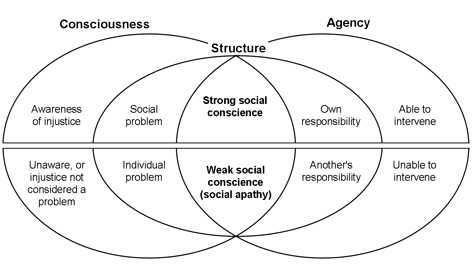-
Chapters from the paperback
- Introduction
- Ecocriticism
- Optimisation
- Grounded Economic Awareness
- Advertising Awareness
- Transition Skills
- Commons Thinking
- Effortless Action
- Permaculture Design
- Community Gardening
- Ecological Intelligence
- Systems Thinking
- Gaia Awareness
- Futures Thinking
- Values Reflection and the Earth Charter
- Social Conscience
- New Media Literacy
- Cultural Literacy
- Carbon Capability
- Greening Business
- Materials Awareness
- Appropriate Technology and Appropriate Design
- Technology Appraisal
- Complexity, Systems Thinking and Practice
- Coping with Complexity
- Emotional Wellbeing
- Finding Meaning Without Consuming
- Being in the World
- Beauty as a Way of Knowing
- Citizen Engagement
- Re-Educating the Person
- Institutional Transformation
- A Learning Society
- Additional chapters
- Interviews
Home » The Handbook of Sustainability Literacy » Chapters from the paperback » Social Conscience
Social Conscience
Social Conscience: The ability to reflect on deeply-held opinions about social justice and sustainability. Myshele Goldberg, University of Strathclyde and the Centre for Human Ecology
____________________
What is social conscience, and why is it relevant?
Conscience can be described as internalised values: a person’s intuitive ‘moral compass.’ While rational, philosophical, or religious arguments are often used as justifications, conscience itself is primarily emotional: we associate feelings of pleasure and pride with right action, and feelings of guilt and shame with wrong action. These emotions help to motivate choices and behaviour, playing an important role in the maintenance and transformation of social norms. In many ways, the norms of society are the sum of our collective values and priorities – as society shapes us, we shape society.






